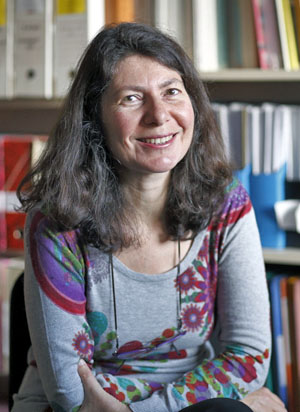Magali Barbieri
Researcher in the Department of Demography and at INED
Co-Director of the Human Mortality Database

Magali Barbieri has a joint research position since 2006 in the Department of Demography and at the French Institute for Demographic Studies (INED) in Paris, France. At Berkeley, she has been working in various capacities for the Human Mortality Database (HMD) project, which she has been co-directing since 2013. First published in 2002, the HMD is an open-access database with uniformly constructed series of mortality rates and life tables for 41 countries. The HMD is a worldwide reference for mortality research, with over 75,000 registered users and more than 5,500 scientific peer-reviewed publications citing the database as their main source as of the end of 2023. Over the past several years, Magali has also been leading an effort to create the United States Mortality DataBase (USMDB) an HMD-like database for all 50 U.S. states and D.C. for years since 1959 and counties since 1982, in collaboration with researchers from the U.S. National Center for Health Statistics and, more recently, a United States Fertility DataBase (USFDB), a similar project for fertility indicators.
In addition to her leadership role, Magali has maintained an active research career, presenting papers at scientific conferences on a regular basis and publishing a series of notable articles in top demography and other internationally ranked journals (for a complete list of publications, see her curriculum vitae). Though most of her initial work focused on the population dynamics of developing countries, her interests have progressively shifted to high-income countries and, more specifically, to issues of mortality inequalities and comparative trends in causes of death (both across and within countries). Throughout her career, Magali has also been teaching various graduate courses in demography at the Universities of Paris I, X and XIII in France, as well as at the University of California, Berkeley, and more recently at the European Doctoral School in Demography (EDSD). She has been very successful at fund-raising to support her various projects, including from such selective funders as the National Institutes of Health and the National Science Foundation.
